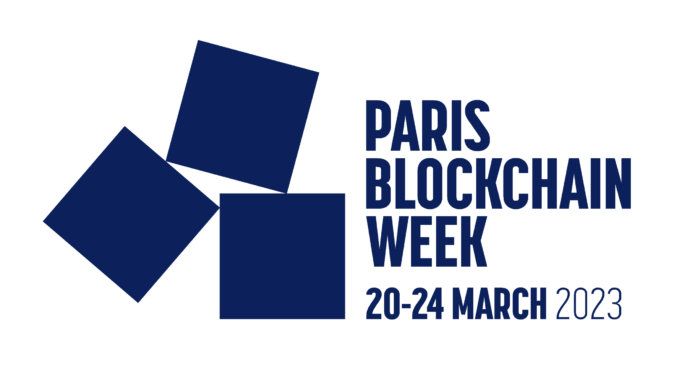BCB Group - Insights - compliance/aml news roundup – A Pakistan Ban?

compliance/aml news roundup – A Pakistan Ban?

A PAKISTAN BAN? GOVERNMENT COMMITTEE PROPOSES PROHIBITION OF VIRTUAL ASSETS AND CRYPTO WEBSITES
Proposals for a cryptocurrency ban have been put forward in Pakistan, after a committee dedicated to the matter compiled and submitted a report to the Sindh High Court. The report asserted that “cryptocurrencies were depleting national foreign reserves and encouraging illicit financing”. The committee was formed at the behest of the Court in the midst of a suit advocating for the legalisation of cryptocurrencies. The case was brought by TV personality and crypto-preuner Waqar Zaka. The committee responsible for the report is led by the deputy governor of the State Bank of Pakistan (SBP), and includes representatives from other governmental bodies such as the Securities and Exchange Commission of Pakistan (SECP) and the Federal Investigation Agency of Pakistan (FIA).
While there is debate as to whether any action would prohibit the exchange of cryptocurrencies’ as assets, the state has already taken a stance on their use as legal tender. In 2018, the State Bank of Pakistan (SBP) issued a circular prohibiting “dealing in virtual currencies”. This recent focus on virtual assets has perhaps been hastened by concerns over the impact of scams, brought about by government watchdogs: the Federal Investigation Agency (FIA) has been investigating the potential defrauding of several thousand Pakistani investors through cryptocurrency scams.
The potential ban flies in the face of cryptocurrencies’ popularity within the state: virtual assets have become increasingly popular within Pakistan. According to the Chainalysis Global Crypto Adoption Index Pakistan has the third-highest crypto-adoption rate in the world. The value of cryptocurrency within the state exceeded that of current Pakistani federal reserves last year, as the country recorded “about $20 billion in cryptocurrency value” making cryptocurrencies and property “top-performing assets in Pakistan”, according to Asia News.
Karachi Chamber of Commerce and Industry (KCCI) former president Majyd Aziz baulked at the potential ban, noting that authorities “seldom figure out the outcome to analyse the risks and benefits of such an action,” he said. “You cannot ban digital currencies before evaluating its impact on the huge investments people made in the digital economy.”
Source: CoinDesk

CENTRAL BANK OF RUSSIA MOVES TO BAN CRYPTO, FACES OPPOSITION FROM MINISTRY OF FINANCE, CRYPTO COMMUNITY
On 20th January the Central Bank of Russia released a report in which it called for a ban on all crypto-related activities, particularly trading and mining. The report cites cryptoassets’ potential to divert money out of the national economy, as well as the resulting impact of this on Russian monetary policy and financial stability, as their main danger and the reasoning behind the sought-after ban. During the press conference in which the proposed ban was announced, the director of the Financial Stability Department of the Bank of Russia, Elizaveta Danilova, was quick to point out that the ban would not affect the private ownership of cryptoassets. However, it is difficult to comprehend how this could be the case since a ban on all crypto-related activity would in effect reduce the fungibility of any privately held cryptoassets to nil – Russia has already banned crypto payments within the country.
The ability of the Russian state to enforce a ban on all activities would likely be limited given the inherently borderless nature of cryptoassets. It is worth noting that the report recommended stricter punishments being implemented for violations of Russia’s ban on crypto payments, suggesting that the State is already struggling to enforce this. Furthermore, a ban of this nature would in all likelihood negatively impact the Russian economy both through the closure of businesses and the resulting brain drain. This sentiment is echoed by Sergey Mendeleev of InDeFi who posited that the proposed ban is indicative of a larger trend of Russia moving in the wrong direction and would result in “Russia lagging behind in technology even more than it is now.”
Luckily for Mr. Mendeleev (and the wider Russian crypto-community), it appears that Russia’s Finance Ministry also opposes an outright ban on crypto-related activities. Ivan Chebeskov, of Russia’s Ministry of Finance, proposed on Tuesday that the best way to protect both Russia and its citizens was to regulate and not ban these activities. He also highlighted the need to let the industry mature and that an outright ban would not allow this to happen.
Source: CoinDesk

UK, SPAIN, AND SINGAPORE MOVE TO BRING CRYPTOASSET PROMOTIONS WITHIN REGULATORY FOLD
This article was prepared by Will McFadden, Legal Analyst, and Anna Cooper, Junior Compliance and AML Analyst and was overseen by Natasha Gonseth, Head of Compliance.
 Will McFadden | Legal Analyst
Will McFadden | Legal Analyst
 Anna Cooper| Junior Compliance Analyst
Anna Cooper| Junior Compliance Analyst
 Natasha Gonseth | Head of Compliance
Natasha Gonseth | Head of Compliance







